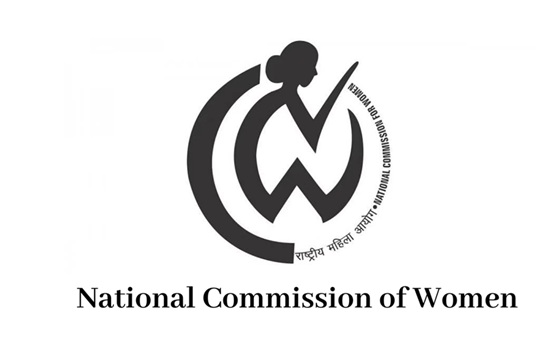Why in the news ?
In 2025, the National Commission for Women (NCW) received a total of 7,698 complaints. The most common complaints were:
- Domestic violence: Physical and mental abuse by husbands or family members.
- Harassment and threats: At the workplace or social level.
- Criminal threats and sexual violence cases.

This highlights that incidents of violence and discrimination against women continue to persist, and the Commission plays a critical role in addressing these issues.
Introduction to NCW
- Established: 1992 under the National Commission for Women Act, 1990.
- Type: Constitutional body.
- Purpose: To review constitutional and legal safeguards for women, recommend legislative reforms, resolve complaints, provide legal assistance, and conduct inquiries.
- Reporting: The Commission submits annual and special reports to the Central Government, which are forwarded to relevant State Governments for action.
Key Functions and Responsibilities
- Review of laws and policies
- Reviews major laws concerning women and recommends amendments, e.g.:
- Domestic Violence Act, 2005
- The Sexual Harassment of Women at Workplace (Prevention, Prohibition and Redressal) Act, 2013
- Sends recommendations to the government and judiciary for improvements.
- Complaint redressal and support
- One-Stop Centres: Under the Nirbhaya Fund, provide legal, medical, and psychological support to women.
- Suo motu action: Takes immediate action in sensitive cases, e.g., the Barmer suicide case (June 2025).
- NRI Cell: Addresses complaints of Indian women abandoned by NRI or expatriate husbands.
- Education and awareness
- Digital literacy campaign: “Yashoda AI Initiative” — promotes AI and digital literacy among women.
- Pre-marital counselling: “Tere Mere Sapne” program offers guidance on marital life issues.
- Swift dispute resolution
- Family Women Lok Adalats: Quick resolution of marital and family disputes.
- Coordinates with State Governments and NGOs to assist in mediation.
Achievements and Major Initiatives
- Strengthening constitutional and legal protection for women.
- Establishing one-stop centers and support facilities.
- Suo motu action and investigation in sensitive cases.
- Empowering women through digital literacy and AI awareness programs.
- Quick resolution of family and marital disputes.
- Protection of Indian women internationally through the NRI Cell.
Criticisms of NCW
- Lack of adequate powers
- The Commission has quasi-judicial powers, not full judicial authority.
- Can only make recommendations; cannot enforce laws.
- Often referred to as a “toothless tiger.”
- Limited resources and reach
- Insufficient budget and staff.
- Limited presence in rural and remote areas.
- Low public awareness about its role.
- Coordination and effectiveness
- Lack of coordination with State Women Commissions.
- Conflicts over jurisdiction and responsibilities.
- Recommendations are often not acted upon.
- Political interference
- Chairperson appointments are sometimes influenced by politics.
- Frequent changes in leadership affect independence.
- Delay in action on sensitive cases (e.g., Hathras, Manipur).
- Way Forward: Recommendations by Parliamentary Committees
- More independent and effective Commission
- Review NCW Act.
- Grant genuine quasi-judicial powers.
- Ensure accountability
- Make it mandatory for police and agencies to follow NCW directives.
- Introduce penalties for non-compliance.
- Coordination with State Commissions
- Legally define coordination mechanisms and jurisdiction.
- Independent appointments
- Merit-based selection involving civil society and judiciary.
- Increase resources and outreach
- Raise funding, establish regional offices.
- Partner with NGOs and implement digital grievance redressal.
- Focus on marginalized groups
- Special attention to women from Scheduled Castes/Tribes, minorities, and differently-abled groups.
- Data collection and research
- Collect data on women’s development indicators.
- Promote local research and awareness programs.
Conclusion
- The National Commission for Women (NCW) is a vital institution for safeguarding women’s rights in India.
- To be truly effective, it requires:
- Greater legal powers
- Independence
- Strong grassroots presence
- An empowered NCW is key to ensuring justice for women and achieving gender equality in India.



